Residual encephalopathy is a disease of the brain, in which the neurons of the organ are affected.
In most cases, the cause of the pathological condition is inflammation or trauma. Residual encephalopathy is accompanied by characteristic clinical symptoms, with which it is important to consult a neurologist in a timely manner. Lack of therapy will lead to serious consequences.
Record content:
- 1 Views
- 2 Stages and degrees
- 3 Symptoms
- 4 Reasons for the appearance
- 5 Diagnostics
- 6 When to see a doctor
- 7 Prophylaxis
-
8 Treatment methods
- 8.1 Medications
- 8.2 Traditional methods
- 8.3 Other methods
- 9 Possible complications
- 10 Residual Encephalopathy Video
Views
Given the provoking factors against which residual encephalopathy develops, the following types of pathology are distinguished:
| Name | Description |
| Toxic | The pathological condition develops under the influence of harmful substances. These are heavy metals, poisons, certain medications containing active ingredients in high concentrations. Toxic residual encephalopathy causes damage to the nervous tissue. |
| Alcoholic, narcotic | The brain substance is destroyed under the influence of constant abuse of alcoholic beverages, drugs. |
| Dyscirculatory | The provoking factors are diseases of the cardiovascular system, high blood pressure, atherosclerotic vascular disease. This also includes ischemic processes in the brain and prolonged oxygen starvation of tissues. |
| Post-traumatic | Trauma or mechanical stress, as a result of which the nervous tissue is damaged, leads to disruption of the functioning of the central nervous system. |
| Hepatic, renal | Residual encephalopathy develops as a result of serious kidney and liver problems. |
| Glycine | The disease is a consequence of impaired glycine metabolism. |
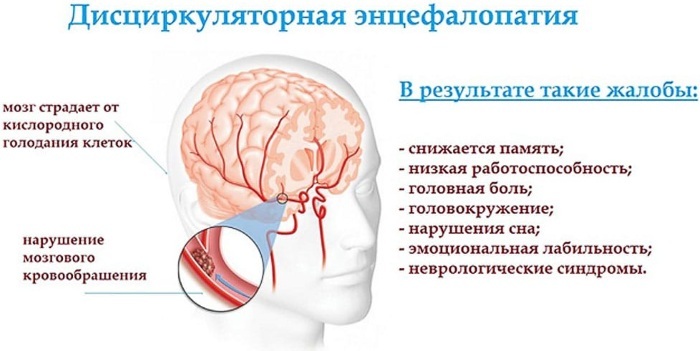
With the development of any type of pathology, patients show characteristic clinical symptoms. It is necessary to undergo an examination in order to establish an accurate diagnosis and begin treatment.
Stages and degrees
According to the severity, the following types of residual encephalopathy are distinguished:
| Name | Description |
| Easy | The patient is in a state of excitement. General weakness or severe irritation of the patient is noted. Muscle tone decreases or increases. |
| Average | At this stage, neurological disorders occur. Hydrocephalus, convulsions appear, motor reflex is disturbed. Muscle tone decreases, sleep worsens. |
| Heavy | The disease is accompanied by a complete depression of the functioning of the brain. Consciousness is impaired. The patient falls into a coma, from which it is difficult for doctors to remove him. |
At each stage, characteristic symptoms of the disease appear, with which the neurologist establishes a preliminary diagnosis and prescribes an additional examination.
Symptoms
The clinical picture of residual encephalopathy depends on numerous factors, including the forms of pathology:

| Name | Symptoms |
| Congenital |
|
| Acquired |
|

At an early stage of development of residual encephalopathy, symptoms of intoxication appear. The person is nauseous, worried about vomiting, severe headache, dizziness. Clinical signs in the acquired form of pathology appear gradually. Symptoms in most cases depend on the degree of development of the disease.
Reasons for the appearance
Residual encephalopathy is a serious disease that can provoke which can be numerous internal or external factors:
- birth injury;
- bad habits (abuse of alcoholic beverages, drugs);
- complication of vaccinations;
- damage or trauma to the head, spine;
- poisoning of the human body with poisons, heavy chemical elements;
- damage to cerebral vessels;
- genetic mutations, congenital anomalies of brain structures;
- damage to the circulatory system;
- diseases of the central nervous system;
- lack of vitamins in the human body;
- radiation exposure.
Postponed heart attack, stroke, connective tissue dysplasia are also triggering mechanisms for the development of residual encephalopathy. The same applies to numerous violations and abnormalities during the period of intrauterine development of the child. These are hypoxia, ischemia of cerebral structures, microanomalies.
Diagnostics
A neurologist will help diagnose the disease. The specialist, taking into account the patient's complaints, will prescribe the most informative comprehensive examination. Based on the data obtained, he will select an effective therapy regimen.
Residual encephalopathy is diagnosed using the following examination methods:
| Name | Description |
| Rheoencephalography (REG) | The specialist determines the condition of the blood vessels in the head of a person. The diagnostic method is as informative as possible and helps to assess the functioning of the large vessels of the brain, their patency. |
| Doppler ultrasound (ultrasound) | The examination allows you to establish the provoking cause of disorders in the brain area. |
| Magnetic resonance imaging (MRI) | The diagnostic method is prescribed for patients who have pronounced clinical signs. During the examination, a specialist examines all the vessels of the brain and neck.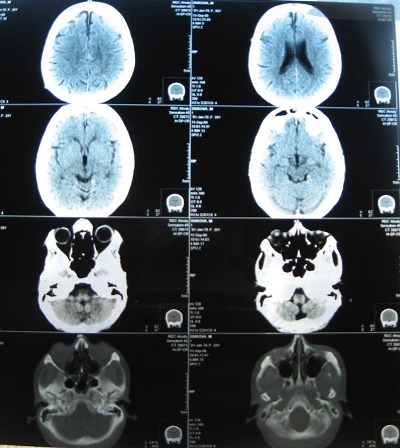
|
| Laboratory research | The patient needs to donate blood and urine for research. Additionally, a biochemical blood test is performed. Taking into account the patient's condition and the area affected by pathological processes, a study of cerebrospinal fluid is also prescribed. |
It is important to differentiate residual encephalopathy, since many diseases are accompanied by similar clinical signs. After undergoing a comprehensive examination, the patient may need additional advice from other specialized specialists (endocrinologist, physiotherapist, radiologist, cardiologist).
When to see a doctor
Treatment of residual encephalopathy is difficult and takes a long time. Timely diagnostics and properly selected therapy will help improve the prognosis for recovery. Therefore, it is important to consult a doctor immediately when the first clinical signs appear. Progressive processes provoke serious complications and consequences for the patient's life.
Prophylaxis
To prevent the development of residual encephalopathy, it is first of all necessary to avoid provoking factors that contribute to the occurrence of pathological processes.
There are also simple recommendations from specialists for the prevention of the disease:
- Regularly be examined and strictly adhere to all appointments of an obstetrician-gynecologist to a woman while carrying a child. Hand over routine tests, observing all the rules.
- It is better to treat viral and infectious pathologies in a timely manner, it is better under the supervision of a specialist who can fully confirm the person's recovery.
- Avoid situations that increase the risk of head injury.
- Strengthen the body, exercise, temper and moderate physical activity.
It is also important to be less nervous and avoid stressful situations, overstrain. An active and healthy lifestyle, proper nutrition is also a good prevention.
Treatment methods
Residual encephalopathy is treated with complex methods. Patients are prescribed medications, taking into account the results of diagnostics and the individual characteristics of the organism.
Additionally, if there are no serious contraindications, you can use folk remedies. During the rehabilitation period, physiotherapy procedures are also prescribed. Patients with residual encephalopathy will have to radically change their lifestyle, observing all the recommendations of a neurologist.
Medications
The specialist selects medicines, taking into account the person's condition and the degree of development of the disease. It is important to adhere strictly to the prescriptions, as many medications provoke side effects. Drugs are used that slow down the development of pathological processes, improve the general condition of the patient and eliminate clinical symptoms.
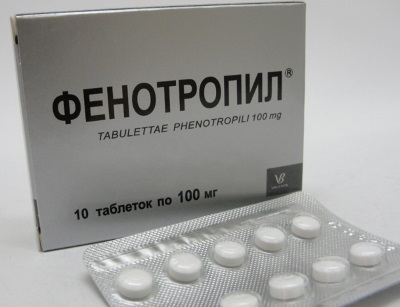
| Drug group | Name | Application |
| Medicines to improve blood circulation | Pantogam, Phenotropil | The drugs improve microcirculation in the small vessels of the brain. The adult single dosage is 0.25-1 g. The course of treatment lasts 1-4 months, in some cases it is extended up to six months. |
| Antiplatelet agents | Curantil, Tiklid | Medicines have an antithrombotic effect and are prescribed to patients in most cases for life. Depending on the patient's condition, the adult dosage is 75-225 mg 3 times a day. The tablets are swallowed whole, taken on an empty stomach with plenty of water. |
| Diuretics | Betaserc, Furosemide | The medicine is taken orally with meals. The adult daily dosage is 24-48 mg. The doctor prescribes 1-2 tablets 2-3 times a day. |
| Neuroprotective agents | Gromecin, Ceraxon | Preparations are necessary for the correct and enhanced functioning of the brain. Adult patients are prescribed 1 tablet 2-3 times a day. The course of therapy lasts 2-4 weeks. |
| Antioxidants | Pyridoxine, Riboflavin | Medicines strengthen the body's defenses. The tablets are taken orally after meals. The adult dosage is 0.02-0.03 g 1-2 times a day. The course of therapy lasts 1-2 months. |
| Anti-dizziness drugs | Tagista, Vestibo | The medicine is taken orally with meals. Adults are prescribed 1-2 tablets 3 times a day. The duration of treatment depends on the patient's condition, the minimum course of therapy lasts 2 weeks. |
| Vasodilator drugs | Trental, Cavinton | The drug is taken orally 1 tablet 3 times a day. Gradually, the adult dosage is increased to 200 mg 2-3 times a day. The medicine is taken after meals with plenty of water. |
| Sedatives | Phenazepam, Relanium | Adults are prescribed 0.5-1 mg 2-3 times a day. The course of treatment is 2 weeks. |
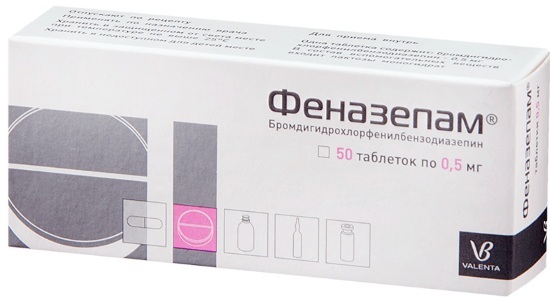
Complexes of vitamins and microelements, which are also prescribed by a neurologist, will help to support the body. Surgical treatment is indicated in emergency situations, since the operation can be life-threatening for the patient.
Traditional methods
In the complex treatment of residual encephalopathy, folk remedies are used, but strictly after consulting a doctor. It is necessary to prevent possible complications or deterioration in health. There is always a risk of an allergic reaction or individual sensitivity.
Effective folk remedies:
| Name | Recipe | Application |
| Herbal balm | Mix in equal parts propolis tincture, red clover and Caucasian dioskerei rhizome. | The finished balm is recommended to be taken by patients 3 times a day, 5 ml each, diluted with water (50 g). The course of treatment lasts 60 days, then the patient needs to take a break for 2 weeks and continue therapy. |
| Horsetail | Pour 2-3 tbsp. dry herbs with boiling water (500 ml). Close the container, wrap it up and leave for 35-40 minutes. Strain the resulting tincture and take it orally. | The medicine is recommended to be consumed in the morning and in the evening, 250 ml each. The course of treatment lasts 2.5-3 weeks. |
| Herbal collection | Mix equal proportions of peppermint, valerian, motherwort and hops. Pour 1 tbsp. herbal collection with boiling water (350 ml). Put the resulting mass in a water bath and heat for another 15-20 minutes. Cool and filter. | The finished broth should be taken 300 ml 3 times a day. It is recommended to prepare the medicine fresh each time and use it warm. |
| Rosehip infusion | Pour 5-6 berries of the plant with hot water (1 tbsp.). Leave for 3-4 hours and strain. | Ready-made rosehip infusion is recommended to be consumed before meals for 10-20 minutes for 1 tbsp. A small amount of sugar or honey can be added for flavor if desired. |
| Chinese lemongrass | Mix the crushed fruits and leaves of the plant with alcohol in proportions 1: 5. The resulting mass must be kept in a dark place for 10 days. Strain and take orally. | The finished product should be consumed at 30 ml per day. |

Folk recipes, especially those based on herbs, help reduce dizziness, help cleanse the blood vessels of the brain and improve blood circulation. Turmeric has the same effect. It must be mixed with warm milk and taken every morning on an empty stomach.
Other methods
Residual encephalopathy is treated with complex methods. Properly selected therapy involves lifestyle changes.
Patients are advised to adhere to the following rules:
- It is imperative to give up bad habits (abuse of alcoholic beverages, drugs, tobacco products).
- It is important to monitor your weight, while increasing it, work on yourself in order to remove extra pounds.
- It is necessary to change the diet, exclude from the menu foods that contain a large amount of saturated fat. Also reduce the consumption of table salt.
- Patients need to go in for sports, lead the most healthy lifestyle.
- If the work is associated with hazardous production, it must be changed.
It is important to completely exclude the factors that provoke the development of residual encephalopathy.
Additional treatment of pathology involves the use of the following methods: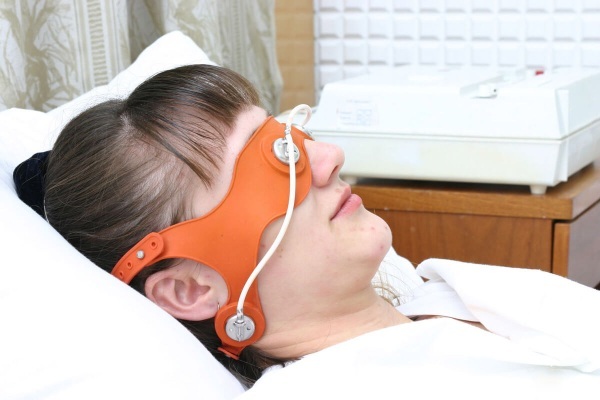
| Name | Description |
| Psychotherapy sessions | The specialist helps the patient to calm down, adequately look at problems and stressful situations. The patient is taught to independently find balance during psychological stress. Thanks to psychotherapeutic sessions, the patient's resistance to various stressful situations increases. |
| Physiotherapy | An instructor or doctor selects a specific set of exercises for each patient, taking into account the person's condition and the individual characteristics of his body. Improvement occurs with regular exercise 4-5 times a week. |
| Physiotherapy procedures | The following procedures have a healing effect:
|
| Massage | With residual encephalopathy, therapeutic, acupuncture, lymphatic drainage massage helps. The point effect has a positive effect on the functioning of the brain, blood circulation improves, and blood pressure is restored. Swelling is also eliminated, tension and muscle spasm are reduced. Massage promotes the formation of new neural connections. |
| Spa treatment | Patients are more often sent to local health centers, as residual encephalopathy provokes strong acclimatization. Sanatorium treatment is indicated for patients with mild and moderate disease. |
During the complex treatment of residual encephalopathy, patients are also advised to adhere to proper nutrition:
| Allowed Products | Prohibited foods |
|
|
It is important to control body weight, walk more in the fresh air without increased stress, taking into account the state of the body and its individual characteristics. Patients are advised to get enough sleep, and the night's rest should take at least 8 hours.
Possible complications
Residual encephalopathy can be cured by going to the hospital early in the development of the disease. But there are situations when the disease was discovered late, the therapy was chosen incorrectly, or, when the diagnosis was made, the patient did not undergo treatment.
In this case, serious consequences await him, with which it is much more difficult to cope: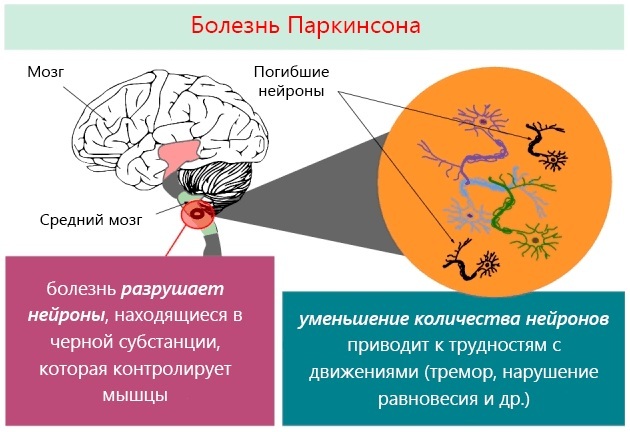
| Name | Description |
| Cerebral paralysis | The pathological condition is characterized by damage to the central nervous system. Various movement disorders, intellectual disorders, epilepsy, and balance problems appear. The main reason is the underdevelopment of the brain. |
| Parkinson's disease | A disease of the central nervous system that develops slowly and gradually. Pathology is characterized by impaired movements, reflexes, tremors of the limbs. Brain stem nerve cells are affected. |
| Oligophrenia | Mental illness, which is accompanied by intellectual disabilities and volitional disorders of varying severity. |
Vegeto-vascular dystonia, progressive dementia, epilepsy and human developmental disorders are also a consequence of the disease.
Treatment of residual encephalopathy is mandatory. Even after a full recovery, there is always a risk of recurrence. It is important to monitor your health, for preventive purposes, visit a neurologist and not miss the first symptoms. Progressive pathological processes will lead to serious complications without timely therapy.
Residual Encephalopathy Video
Symptoms, causes, treatment of residual encephalopathy:



